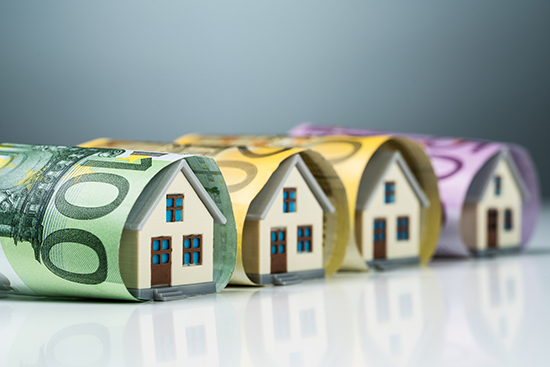The year 2020 is one for the history books as it changed many aspects of our lives; the mortgage market was no exception. Never before have there been such low interest rates, such high house prices, so many people looking to renovate their homes, and such a significant increase in mortgage applications.
Don’t mind the virus
While the world suffered major problems in 2020 because of Covid, the Dutch mortgage market didn’t seem to mind the virus and continued to grow. According to an inventory by market-leading mortgage broker De Hypotheker, the two main reasons for this increase are the low interest rate and the need for home improvements due to working from home amid the Covid-19-measures. And for now, De Hypotheker’s commercial director Menno Luiten expects this trend continue in 2021.
A crisis was expected in the mortgage market, but this did not materialize. Merlyn van den Berg, director of HDN, a data agency for mortgages, recalled that Covid led many experts to believe that the mortgage market would collapse. “But that did not happen, and even at the peak of Covid cases in March and April, mortgage applications poured in.”
Van den Berg explained that this unpredicted scenario came with a downside: the average home value rose sharply, making it difficult for first-time buyers and those using the National Mortgage Guarantee (NHG) to buy a home, as well as for entrepreneurs. Due to the tight housing market, the average mortgage amount rose by 7.9 percent to €312,000, while the average home value increased by 9.4 percent to €386,000.
A record number of applications
HDN registered a total of 535,375 mortgage applications in 2020, an increase of 24.5 percent compared to the previous peak year 2019, when there were 430,076 mortgage applications. The number of applications for the purchase of a home increased to 303,789, representing an increase of 10.8 percent; the number of refinancing and second mortgages amounted to 231,586; of which 109,875 mortgages were refinances, while 63,126 homeowners applied for a second mortgage to renovate or make their homes more sustainable. This represents a rise of 48.5 percent more than in 2019. The main reason for the rise in refinancing and second mortgages is the historically low interest rate, making a mortgage more profitable than ever before.
Together, the total amount applied for in mortgages was over € 136 billion, of which € 3.1 billion was intended for renovations, twice the amount of 2019.
Zeeland takes the lead
The buyer and non-buyer market grew the most in Zeeland in 2020, by 13.1 percent and 62.2 percent, respectively. In absolute numbers, Zuid-Holland is the number one province leader in the buyer’s market, with 53,665 applications. Only in Flevoland and Groningen the buyer’s market declined in the past year.
The future in the housing market
According to De Volkskrant, just after the Covid outbreak, the two major mortgage lenders in the country, ABN Amro and Rabobank, weren’t very hopeful about the housing market. Nevertheless, more than half of all houses were sold for more than the asking price. Now, these banks expect an increase of 5 percent for 2021. Furthermore, it is expected that central banks will stick to low interest rates to promote the economic recovery after Covid.
Peter Boelhouwer, professor of the housing market at TU Delft, points out that there is a shortage of about 331,000 homes. “We still build far too little. With an estimated 65,000 building permits in the past year, we are still well below the desired minimum. So, prices will continue to rise.”
Boelhouwer explained that this year’s changes in transfer tax also affect the market. First, the increase in the transfer tax from 2 to 8 percent for property investors will result in increased rents. And the abolition of the transfer tax for first-time buyers up to the age of 35, will probably mean that first-time buyers will be able to place higher bids, driving up prices even more.
Written by Bárbara Luque Alanís
